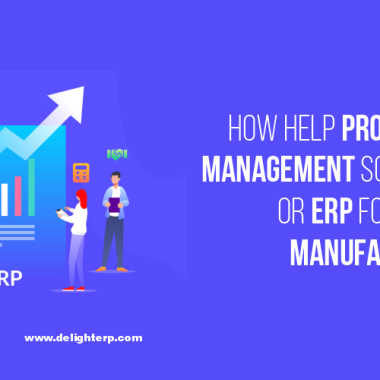Introduction
Manufacturing gets success when they properly manage their production with the proper planning, production quality, and production control. Manufacturing industries use the ERP(Enterprise Resource Planning Software) to monitor production.
Customers gain their trust in the companies and purchase their products when they provide the same quality products every time. Maintaining the customer relationship for the longtime manufacturing industries maintains consistency in the production.
In the competitive market, businesses provide the products to the customer at their given time. That’s why companies have to make a proper schedule for manufacturing processes and control all the processes. Also, companies or organizations have to decrease the wastage of raw materials and increase the net profits.
The production, planning, production quality, and control provide the best output and maintain the trust of the consumers.
What is production?
Production is the process where the companies can convert the raw material into the product and the companies sell the products in the market. In other words, the final result of the production industries is the product.
The production is a set of the number of components and processes. WIthout manufacturing consumers weren’t able to get the products or services.
For Example:
Imagine there is Company AB, a manufacturing company, who manufactured the man’s T-Shirts. They delivered the well-designed T-Shirt to their consumer on time. But the T-Shirt is manufactured from cloth.
Company AB uses the cloth as a Raw-material and with the help of other workers and the use of machines, they convert this cloth into designer T-Shirts and deliver them to their consumers on time. The T-Shirt is the output of the production.
What are Production Planning and their steps?
For the production of the product manufacturing industries follow the planning to complete the order on time. They scheduled all the production processes and until the deadline they finished their production.
Production process planning has a few steps which are as follows.
1. Estimate the products demands
Manufacturing industries have multiple tasks during the manufacturing of the products. They have to be aware of the consumer’s order and complete the task at the deadline.
The companies didn’t know the demands then they didn’t manufacture enough products or services and they were not able to provide the material to all the customers. Provide the material or products to all the buyers at the deadline because of that companies have to be aware of the demands of their orders.
2. Potential option for the products
Determining the potential option for the products is another step of production planning. Through this step, manufacturing understands the workload and manages or distributes the work to the employees.
The companies get a different order every time and they have to deliver or complete the production as per the given time. So selecting the potential option is a part of the manufacturing process.
3. Efficient cost and time
Companies, businesses, or manufacturing industries want to increase their profits. The companies want to increase their profits then they have to manage their cost. If the cost is less than the profits, it means companies increased their revenues, else all the profitable amounts are spent on purchasing the raw material.
Also, companies have to maintain the time and give the delivery on time otherwise late delivery makes a bad impact on the sales ratio.
4. Monitoring the processes.
Monitoring is an essential part of completing the task at a deadline. Manufacturing industries have to monitor the production processes to ensure the work is running as per planning or not. Without the monitoring manufacturing cycle, there were chances to didn’t complete the task on time.
5. Adjust the plan
Manufacturing industries are ready to face any challenges which occur during the process. Also, they have a spare plan for any emergency time like the consumers expanding their order and demand to ready their order on time. To maintain the relationship and increase the profits companies have to get ready the material at a given time. So, the planning should be flexible.
The production planning process is important to complete the task, order, or service provided to the customer as per their needs. A good manufacturing product plan minimized the lead time. Proper scheduling and planning will open the door for success.
Recommended for you: What Are Process Manufacturing Challenges Will ERP Software Solve?
Product Quality: Why is it Important?
The companies or businesses are successful while maintaining the trust of the consumers in their products. Just think, the consumer purchased the food for the first time and they liked the test. But when at another time they purchased the same brand’s food and the test was changed then the consumer never purchased the products from this brand.
Maintaining the quality of the products is necessary for maintaining user trust in the products. A perfectly maintained productivity gains more buyers and boosts the revenue of the companies.
Product quality is important because the companies established their reputation. High-quality products bring opportunities to the industries to meet new customers.
The quality of the products follows some key principles…
-> Customers Intrust – is maintained when the quality of the products is maintained. The consumer gains new consumers while they believe in the product’s quality.
-> Continues Improvement – The companies continue to improve their products and always give the best material then with these strategies, businesses maximize their revenue.
-> Employee involvement – The best companies always get success with the best employees. Productivity is maintained when employees properly complete their tasks. That’s why employee involvement is needed to maintain the quality of the material.
-> Strategic management approach – Best strategies give the best result. According to that, manufacturing industries follow the strategies to bring out the best quality outputs.
Production Control
Production control is an activity to monitor and control any manufacturing cycle. Controlling the manufacturing process is done from the particular controlling room.
The production control process includes the planning, monitoring, and controlling of the process of manufacturing.
The objective of the manufacturing process control is as under.
– Regulate inventory management
Manufacturing industries have to maintain the supply chain. That’s why they monitor the process to manage the supply chain.
– Organize the production schedules
Businesses, companies, or industries can provide the material to the customer on time if they follow the schedule which is made during the production planning.
– Optimum utilization of resources and production process
Through the help of the manufacturing cycle control, companies and businesses properly utilized the resources and production process. Also, wastage of the raw material is decreased and the result of this maximized the revenue.
There are some advantages of using Production control…
– Ensure a smooth flow of all manufacturing processes
There are various steps for manufacturing the products. And maintain the workload and similarly divide the work into the employee and as per given task employees or workers can do their work or is monitored by the companies’ owner or controller.
– Ensure production cost
Manufacturers have to maintain several costs like raw-material purchases cost, employees’ salaries, bills, taxes, insurance premiums, etc. So, this cost is less than the profits and low-cost production boosts the revenue of the manufacturing industries.
– Control wastage of resources
Sometimes the purchasing team purchased the material in advance and as a result, the storage is overflowing with the raw material. In some cases, this material will go to waste, through this wastage companies have chances to decrease their profits.
– Maintains the quality of the products
Proper monitoring of the life cycle of the manufacturing process helps to maintain the quality of the products. Maintaining consistency of the product gains the buyers’ interest in the purchased products.
Conclusion
Manufacturing industries have many competitors in the markets. The companies not only stand out in the competitive market but also, increasing the profit, this is challenging for all companies.
The production processes maintain their product quality with the controlling of the process as per the planning. Through these strategies manufacturing industries get success and maximize their sales ratio. With the help of the ERP software companies easily maintain all their tasks. Also, in the competitive market, they can make the fast and right decisions.





